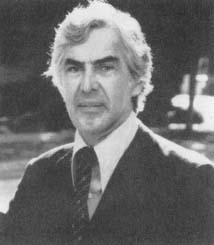John DeLorean Trial: 1984
Top-notch Lawyer
When the most eagerly awaited drug trial in years opened on April 18, 1984, the elegant defendant was represented by one of California's top litigators, Howard Weitzman, and nobody doubted that it would take all of Weitzman's formidable skill to save his client from prison. The prosecution had amassed a wealth of electronic evidence. The jurors heard how FBI agent Benedict Tisa, posing as James Benedict, a crooked banker, had met with DeLorean at a bank in San Carlos, California, on September 8, 1982. In their taped conversation he told DeLorean about a prospective investor who had "all these profits from his cocaine deals," to which DeLorean replied, "It looks like a good opportunity." On a later tape DeLorean was shown raising a glass of champagne and describing cocaine as "better than gold."
Tisa testified that he had heard from James Hoffman, a convicted drug smuggler and government informant, that DeLorean had $2 million "he wanted to invest in a narcotics transaction" that would turn a fast profit. The proposed deal was for DeLorean to invest $1.8 million with Hoffman to buy 34 kilos of coke that they hoped to sell for $5.1 million. Through other Hoffman connections, DeLorean then hoped to raise a $15 million loan routed through the San Carlos bank and parlay his money.
The defense tactics were unconventional. With such a high-profile client, Weitzman shrewdly opted for maximum publicity as a way of demonstrating that DeLorean had nothing to fear. At the end of each trial day, Weitzman held a well-attended press conference outside the federal courthouse. Not only did this allow him to cozy up to the media, it gave him the opportunity to present DeLorean's side of the argument on a day-to-day basis, without fear of cross-examination. In one tape, DeLorean could be heard telling Tisa that he no longer had the money to buy into the deal. Weitzman informed the reporters that this was DeLorean's way of telling Tisa to "get lost … It's a clear indication that John doesn't want to participate in a narcotics transaction."
 John DeLorean, founder of an independent automobile company on trial for drug trafficking.
John DeLorean, founder of an independent automobile company on trial for drug trafficking.
It wasn't all grand-standing for the cameras. Inside the courtroom Weitzman was giving Tisa a miserable time. After extracting an early confession from the witness that he had lied in telling another contact that he had already received money from DeLorean, Weitzman turned up the heat. He wanted clarification of Tisa's case notes, which appeared to show some inconsistencies. Finally, after three days of relentless questioning, Tisa admitted, "I may have rewrote the pages [sic]."
Weitzman, insistent that the only possible reason for such actions was to alter evidence, looked askance. "And you destroyed the original?"
"Yes, a portion of them," confessed the hapless Tisa.
Weitzman threw his hands up in disbelief. "How do we know what you changed, what you added, what you took out and what you threw away? How do we know that?"
It was a bravura performance, one which moved DeLorean to tell waiting reporters that night, "I only got one thing to say [sic], 'Thank God for Howard.'"
For his part, Weitzman admitted that the tapes showed his client discussing coke. "Clearly his judgment was not only poor, it was non-existent," he said, but added that DeLorean, vulnerable and desperate, had been coerced by government pressure.
Additional topics
Law Library - American Law and Legal InformationNotable Trials and Court Cases - 1981 to 1988John DeLorean Trial: 1984 - Top-notch Lawyer, Witness Sensation